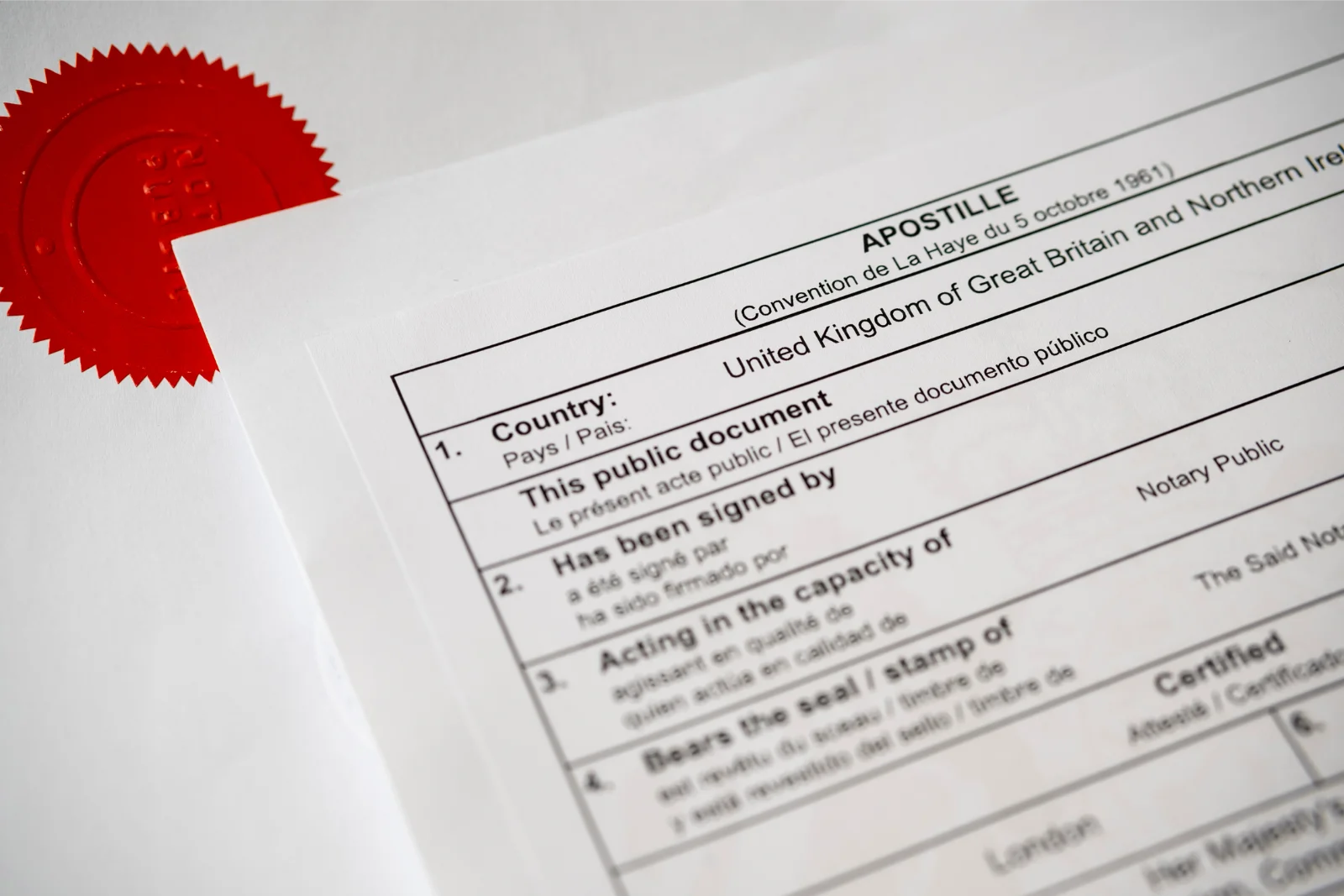Anyone who needs to take their important documents abroad will need to get an apostille for their documents to be usable in the country they want to go to.
Through being issued with an apostille, your documents become legalised, and so are given equal legal weight in the target country. This is useful for both individuals and businesses who need to carry out actions abroad.
However, it should be noted that not every country accepts apostilles as a way of legalising documents.
Keep reading to find out more about apostilles, as well as why you should use our legalisation services, and to see what our partners at Woodcock Notary Public can do for you.
What is an apostille and why were they introduced?
As we have already said before, apostilles are essentially a faster way for documents to be legalised for use in other countries.
Before apostilles, countries had lengthier legalisation processes, known as embassy or consular legalisation.
On 5 October 1961, countries from around the world met at the Hague Apostille Convention, during which they signed a treaty that abolished the need to use the traditional form of legalisation, as well as introduce apostilles.
Following this, over time more and more countries have become signatories of the convention. It is a far faster form of legalisation, as it involves fewer steps. Now, most countries accept apostilles, though many still do not.
How do I get an apostille in the UK?
To get an apostille, there are some steps that you will have to complete.
First, you will likely need to get your documents notarised. Notary Public of England and Wales, Nathan Woodcock, the founder of Woodcock Notary Public, is one such notary who can assist you with this important step. Without this, you will not be able to get an apostille.
Please note that while most documents need to be notarised, certificates issued by the General Registry Office (GRO), such as birth certificates, will not need to be notarised; this is because they have Crown copyright.
Next, you will need to prepare your documents so that they are ready to be submitted to the Foreign, Commonwealth and Development Office (FCDO). Although the apostille process is simpler than the older process, it is still wise to get the assistance of a professional like ourselves here at Fast Legalisation. We can prepare all of your documents for you, then submit them to the FCDO and manage all communications for you.
How long does it take to get an apostille?
We can help you here at Fast Legalisation, as we offer a standard service and a fast-track service for apostilles.
When you use our standard service, it will take around 20 to 25 days for your documents to get an apostille. This option is perfect if you have plenty of time before you need to set off to where you are going.
Alternatively, if you have limited time, you can make use of our fast-track service that takes 5 to 7 days for you to get your documents.
Find out more about the process we use on our webpage.
What if the country I want to go to does not accept apostilles?
As we have already briefly mentioned, not every country accepts apostilles. If you want to go somewhere that does not accept them, such as the UAE, then you will need to go through the lengthier process of embassy or consular legalisation.
There is no specific standard for embassy or consular legalisation, so the process could vary depending on the country. Some countries even use apostilles as part of their embassy legalisation process.
However, generally, you will need to send your documents to the embassy or consulate, and then the process will go from there.
It can be very time consuming to deal with this form of legalisation yourself, which is why we can also manage the whole process for you. Take out the stress with our assistance.
If you are unsure whether the country you want to go to accepts apostilles or not, then use our country checker tool. By using the tool, you will be able to see which countries accept them; any countries not listed will require embassy legalisation.
How Fast Legalisation can help you
Getting an apostille by yourself may be quicker than embassy legalisation, but it can still be time consuming, and mistakes can be made. That is why you should use professionals such as ourselves. We have helped countless clients with legalising their documents, and we can help you too.
By using our services, you can access the FCDO through the standard and fast-track apostille services that we mentioned previously in this post. Additionally, we can help you with every step of the embassy and consular legalisation processes.
So, once you have got your documents notarised for use abroad by Woodcock Notary Public, you can contact us to get an apostille and be on your way overseas.
Get in touch with us today for our expert apostille assistance, and with our partners at Woodcock Notary Public for all of your notary needs.

